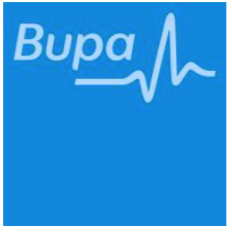Basal Cell Carcinoma
Basal Cell Carcinomas (BCC) or rodent ulcers account for at least 75% of all skin cancers. They develop mostly on sun exposed areas of your skin - face, ears, hands and lower legs and are most commonly seen in people middle aged and older.
Thin BCCs can be treated with topical oinments, however routinely standard surgical excisiona nd reconstruction is recommended. Occasionally either radiotherapy or Mohs micrographic surgery may be appropriate and Mr Peach can talk to you about these options
Why
Over time ultraviolet (UV) rays from the sun cause damage to the skin. The skin can repair this damage, but eventually with increasing exposure and persistent UV penetration the structure of the skin changes and skin cancers develop.
WHO
Not everyone who has had sun exposure will develop skin cancer. However there are some factors which are associated with an increased chance:
Fair/Red hair, blue eyes
Excessive sun exposure over the years, from holidays, living in a hot climate, outdoor work
Frequent subbed use either in the past or currently
There are a few genetic conditions which run in families, although these are rare
People who have previously had a BCC
Diagnosis
Most BCCs can be diagnosed from the history and by clinical examination with a bright light and magnification, dermoscopy is increasingly used to help with the diagnosis. Occasionally a small sample (biopsy) is required to confirm the diagnosis and help plan treatment.
Features
BCCs can vary in their appearance, however any lesion that fails to resolve (continues to bleed, crust or scab over) over 8 weeks should be checked by a clinician with an interest in skin cancer. A BCC may show the following:
Crusts or scabs
Bleeding, often with minor trauma
have a non-healing central area (ulcer)
have several clearly visible blood vessels associated with a visible lesion
uncommonly, an irregular firm scared/white area which is slowly increasing in size
A recurrent lesion in an area previously treated for skin cancer
Treatment
The commonest treatment is surgical excision, performed under local anaesthetic and carried out as a daycase i.e. you come in and go home on the same day. There are other non-surgical alternatives which Mr Peach can discuss with you including:
Radiotherapy - X-ray treatment to the BCC and surrounding area, carried out over several days. The skin is initially sore, but settles
Topical ointments - These are used for very thin or superficial BCCs. Applied regularly over several weeks. The skin again becomes sore, but settles after the treatment is finished
Cryotherapy - a freezing spray is used for superficial BCCs. It produces a blister which gradually settles over a few weeks. Like radiotherapy it can leave a pale discoloured area
Curretage & Cautery - the BCC is scooped out and the base treated with a cautery and the process repeated. The wound is then left to heal on its own. It is useful for small BCCs in ‘safe’ areas
All of the above procedures, do not produce any tissue which can be sent to the pathologist. This means that the assumption is that the lesion has been adequately treated, but there is no formal report to be certain this is the case.
Mohs
This is a process whereby the lesion is excised and the edges are inspected at the time of surgery to ensure that all the BCC is removed, before reconstructing the area. This takes longer than normal surgery and may require repeated local anaesthetic injections, if the BCC is not initially removed. Mohs is principally indicated for recurrent BCCs, particularly after radiotherapy and for BCCs with high risk pathology arising within a high risk area. Recurrence rates of BCCs following Mohs surgery are around 1-2%, where as standard surgery with lighting and magnification can achieve similar results. Mr Peach does not perform Mohs surgery himself, but was an invited by the British Association of Dermatologists, as skin cancer expert, to help them write the UK guidelines on Mohs surgery. Mr Peach will routinely discuss the treatment options available and will happy refer you for Mohs surgery if required as he has done in the past.
Read what aspects of Service our patients have found helpful.
Has information been conveyed in an understanding and informative manner?
On occasion, I have enquired about a treatment I’ve read about, that perhaps might help my condition. Mr Peach will explain the reason why this particular treatment would or wouldn’t be of benefit
location
Based in Leeds
Visit Mr Peach in one of the following locations











